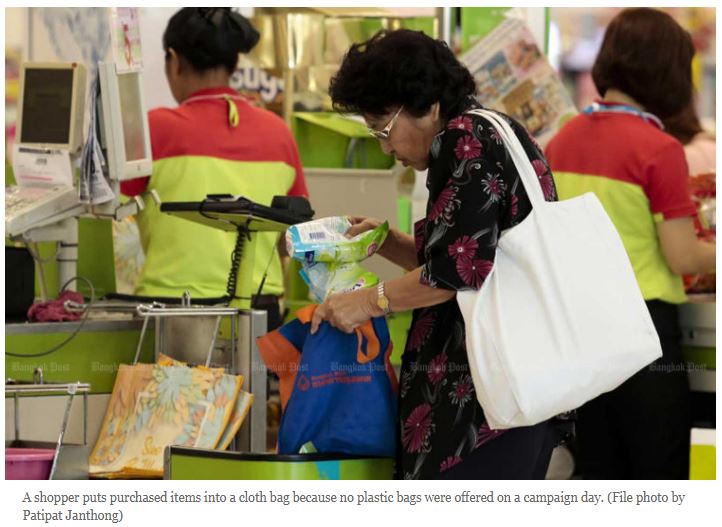Thailand: TDRI wants waste on agenda
Thailand Development Research Institute (TDRI) has urged the government to include waste management as part of the national agenda and proposed the government ban foam usage and make consumers pay for plastic shopping bags.
Somkiat Tangkitvanich, president of the TDRI, said the group’s study found Thailand’s sea debris volume rose rapidly to 1 million tonnes in 2019 from only 400,000 tonnes in 1967.
TDRI was hired by the Thai Chamber of Commerce to study the sources of sea waste in Thailand during February to July this year.
Mr Somkiat said the sources of Thailand’s sea waste are from seaside and riverside communities and shops, coastal tourism and fishing boats.
The biggest volume of garbage is plastic bags, followed by styrofoam boxes and food packages.
“The waste problem could cause severe impacts to the Thai economy, particularly the tourism industry,” he said.
“If the sea garbage becomes more severe, it will affect people’s health. If sea creatures eat plastic and consumers eat those sea creatures, it may cause contamination from microplastics.”
TDRI proposed the government announce garbage solutions as part of the national agenda by introducing legislation to ban styrofoam usage because it takes several hundred years to decompose.
A legal requirement for consumers to pay for plastic bags while shopping will also lower plastic waste, said Mr Somkiat.
“The ongoing campaigns among modern trade outlets to encourage people to reduce the use of plastic bags are insufficient and not effective enough,” he said.
“A charge for consumers who ask for plastic bags while shopping may allow retailers to gouge shoppers, so the government should issue a law pricing single-use plastic bags at 1.50-2 baht apiece.”
Sauwanee Thairungroj, president of the University of the Thai Chamber of Commerce, said the sea waste problem will definitely affect the tourism climate and the overall economy as tourists are unwilling to pay to visit spots that are full of waste.
Heath concerns about contamination of seafood are another factor that may frighten away tourists, she said.
“While the country is in an economic slump, Thailand must speed up developing its circular economy to help boost economic growth,” said Ms Sauwanee.
A circular economy is an economic system aimed at eliminating waste through the continual use of resources. Circular systems employ recycling, refurbishment and reuse of manufacturing to create a closed system, minimising the use of resource inputs and the creation of waste.
“The waste problem is expected to weaken the country’s economic growth and destroy Thailand’s tourism strength in the longer term,” she said. “It may also trigger food contamination that would affect people’s health and the state budget.”
Ms Sauwanee said the chamber will look at the TDRI’s study and suggestions.
Source: https://www.bangkokpost.com/business/1739211/tdri-wants-waste-on-agenda


 English
English




